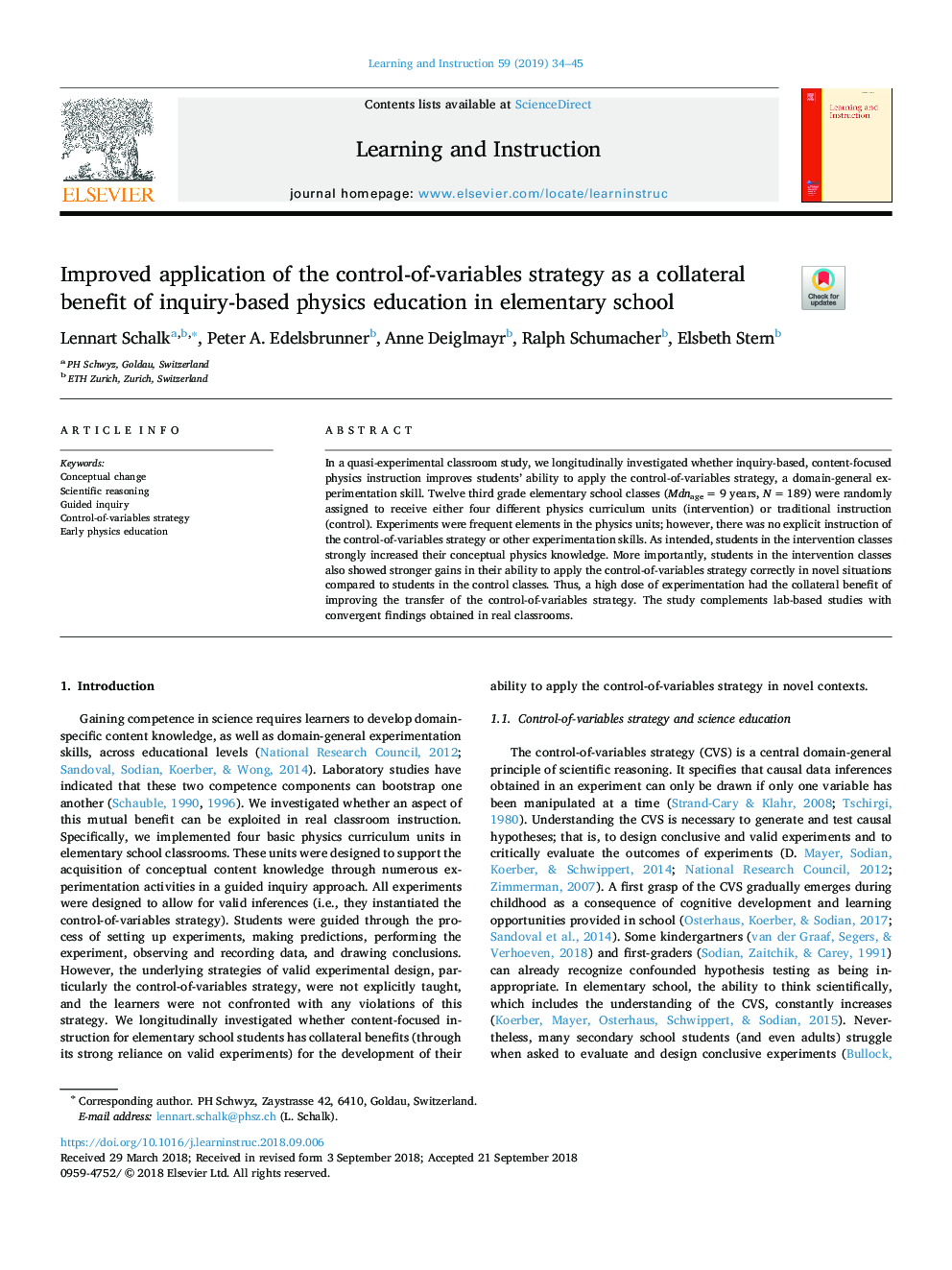| Article ID | Journal | Published Year | Pages | File Type |
|---|---|---|---|---|
| 11023993 | Learning and Instruction | 2019 | 12 Pages |
Abstract
In a quasi-experimental classroom study, we longitudinally investigated whether inquiry-based, content-focused physics instruction improves students' ability to apply the control-of-variables strategy, a domain-general experimentation skill. Twelve third grade elementary school classes (Mdnageâ¯=â¯9 years, Nâ¯=â¯189) were randomly assigned to receive either four different physics curriculum units (intervention) or traditional instruction (control). Experiments were frequent elements in the physics units; however, there was no explicit instruction of the control-of-variables strategy or other experimentation skills. As intended, students in the intervention classes strongly increased their conceptual physics knowledge. More importantly, students in the intervention classes also showed stronger gains in their ability to apply the control-of-variables strategy correctly in novel situations compared to students in the control classes. Thus, a high dose of experimentation had the collateral benefit of improving the transfer of the control-of-variables strategy. The study complements lab-based studies with convergent findings obtained in real classrooms.
Related Topics
Social Sciences and Humanities
Psychology
Developmental and Educational Psychology
Authors
Lennart Schalk, Peter A. Edelsbrunner, Anne Deiglmayr, Ralph Schumacher, Elsbeth Stern,
